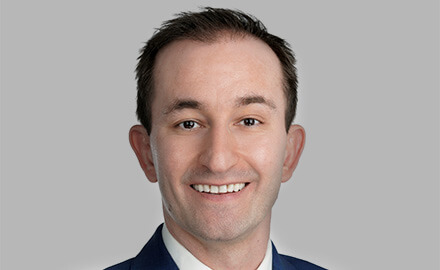Hannover Re’s Eberhardt on Australia’s long, hot summer
March 26 2020 by Andrew Tjaardstra
Sydney-based Michael Eberhardt is general manager Australian branch at Hannover Re.
Eberhardt has been at the German reinsurer for over 10 years and started his existing role in January 2016. Previously he was head of treaty for Australasia.
Hannover Re has had a presence in Australia since the 1980s and underwrites all classes of P&C, treaty and facultative business.
InsuranceAsia News (IAN): It has been a dramatic summer for the (re)insurance market in Australia, what are your observations?
Eberhardt: It has been a very “active” summer for the Australian (re)insurance market indeed. It started with the bushfires of unprecedented size and duration with the majority of insured claims falling into the period of December 30 until January 5. When rain eventually eased the fires, thunderstorms, flood and hail followed and increased the overall insured losses to well over A$5 billion (US$2.87 billion) with corresponding reinsurance recoverable.
The dimension of areas burnt in line with the subsequent frequency of other perils have put climate change on top of the agenda in many boardrooms and moved it to a political mainstream topic. The challenge for the insurance industry will be to appropriately reflect the impact in technical pricing due to the complexity and multi-dimensional impact on both severity and frequency of natural catastrophe events.
IAN: How do you see the bushfires effecting June 1 2020 renewal season and insurers’ appetite for reinsurance?
Eberhardt: The bushfires and other events have demonstrated the value reinsurance provides when it comes to managing capital and earnings volatility. The respective reinsurance programmes have responded and occasionally, limits were tested. I would therefore expect that there will be more appetite to buy reinsurance in the upcoming renewal season but it might be restricted by increased pricing and available budgets.
From a reinsurance perspective, the events in isolation would by and large not materially impact reinsurers appetite to offer capacity in the Australian marketplace but the ceded reinsurance losses particularly under catastrophe aggregate programs will increase the cost and will require brokers and clients to potentially restructure programs.
IAN: What key upcoming changes do you see in the Australian P&C reinsurance market over the next 18 months?
Eberhardt: The frequency and severity of large and natural catastrophe claims, the regulatory environment and the shareholder driven requirement to manage volatility will ensure ongoing demand for reinsurance in the Australasian marketplace in the long-term. The significant losses of catastrophe aggregate programs combined with at best mediocre performance over the past years will trigger specific reviews of structure and pricing.
I would expect the wider implications to result from Covid-19 and the corresponding economic downturn. If we assume that the current demand and supply shock will lead to a global recession, we will face a very challenging environment to navigate.
The duration of economic standstill, government and monetary actions and impact on GWP, investment and underwriting are all linked to uncertainties but have to be factored into the strategic decision making process. Brokers, clients and regulators will likely take an increased interest in monitoring the solvency and capital position of individual market participants.
IAN: Where is Hannover Re adding value in the P&C space in Australasia?
Eberhardt: Hannover Re has been active in Australasia for more than 35 years and has most recently developed its own purpose statement: “Beyond risk sharing – we team up to create opportunities” which demonstrates how we want to continue to create value.
Hannover Re provides long-term reliable reinsurance support backed by a strong balance sheet and actively collaborates with clients in order to find innovative ways to manage volatility, develop new products and protect their capital base.
We have strengthened our Sydney office when it comes to resources and we will continue to invest in specialised know-how such as cyber, claims management and underwriting capabilities on both the treaty and facultative side. Such investment will allow us to extend our service levels into new areas.
-
Crawford confirms Tony Chapman as new head of global technical services for Asia
- July 18
Appointment of Singapore-based Chapman confirms an earlier exclusive from InsuranceAsia News.
-
Allianz Trade promotes Ivy Wanda Sthefvanie to Indonesia commercial manager
- July 17
Sthefvanie has been with Allianz Trade for nearly seven years since July 2012, most recently as an account manager.
-
Fusion Specialty names Robert Underhill as head of Americas
- July 17
New York-based Underhill previously led the M&A transactional liability business across the US, Europe, Asia, and Australia for nine years at Berkshire Hathaway.
-
Aon promotes APAC veteran George Attard to global head of strategy for reinsurance in senior leadership rejig
- July 16
Broker also announced appointments of Alfonso Valera as CEO of international for reinsurance, responsible for UK, EMEA and APAC, and Tomas Novotny as chairman of international for reinsurance.
-
Allianz General | Allianz General combines innovative protection solutions while powering social good to lead Malaysian market
The insurer proactively addresses emerging risks and evolving customer protection needs while giving back to the community.
-
Sedgwick | Asia’s Energy Transformation – Balancing Growth, Risk and Renewables
Energy market presents unique risks, especially in a region which includes China and Japan as well as developing nations like Vietnam and the Philippines.
-
Beazley | Turbulent Waters: the maritime energy transition challenge
Businesses are facing a complex transition to non-carbon energy sources amid a push to achieve net-zero emissions for the marine sector by 2050.
-
Aon | Navigating shifts in the global and Asia insurance markets
Neelay Patel, Aon head of growth for Asia, says the market in Asia is at an ‘interesting stage of the cycle’.

